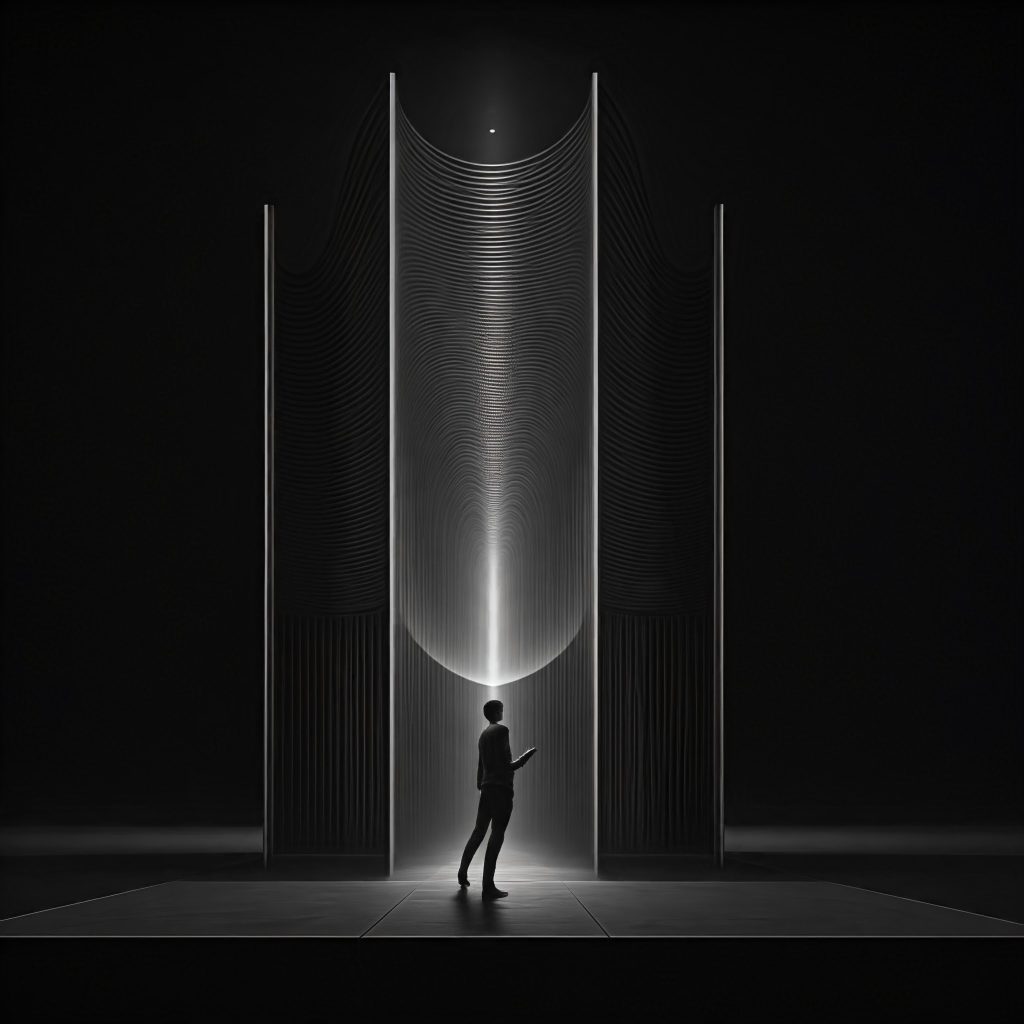The cathedral doors creaked open, and Will Hunter stepped into a realm of sound. The dreamscape was ethereal: the vast interior of the cathedral seemed to stretch endlessly, the stone walls absorbing and reflecting the faint echoes of unseen footsteps. A single chime rang out from a bell high above, its resonance filling the space with a clarity that felt alive.
.
“This is not just architecture,” a voice said, echoing through the nave. It belonged to Ava, a sound designer who appeared from the shadows, her movements guided by the soundscapes around her. “This is the shaping of experience through sound.”
.
Will had studied Murray Schafer’s The Soundscape, which described the acoustic ecology of environments. Schafer believed that sound defined how we moved, felt, and remembered a place. Now, within this cathedral, Will felt the truth of that theory.
.
“Listen,” Ava whispered. She tapped her foot on the stone floor. The sound carried upward, reverberating for seven seconds before fading into silence. “The architects understood how sound interacts with space. Every material, every curve of the ceiling, was chosen to amplify the divine.”
.
Will thought of the ancient builders who had designed cathedrals like Notre-Dame or the Hagia Sophia. Their knowledge of acoustics wasn’t technical but intuitive. Vaulted ceilings, massive columns, and reflective surfaces were crafted to create an auditory experience that lifted the spirit.
.
They moved to the choir section, where Ava hummed a single note. It filled the space, creating a harmonic resonance. “Choral music was written for spaces like this,” she explained. “The architecture and the sound are inseparable.”
.
In a sudden shift, the dream transported them to a modern, glass-walled concert hall. The sound here was sharp and immediate, designed for precision rather than reverence. Will realized how acoustics had evolved with cultural priorities: from communal rituals to individual listening.
.
As the dream began to fade, Ava left Will with a final thought. “Sound is invisible, but it shapes us. The places we inhabit are more than what we see—they’re what we hear.”

